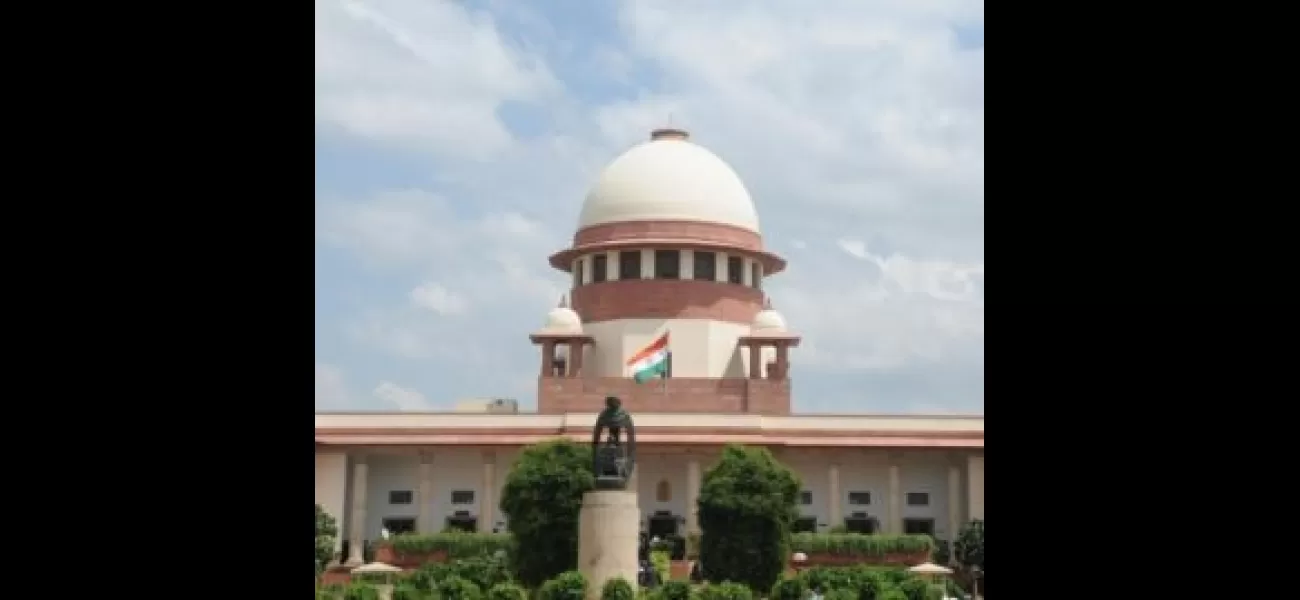The Supreme Court has the authority to form benches and create regulations, according to CIC.
According to the Supreme Court, the autonomy of the Central Information Commission is crucial for its effective functioning, as it has the power to form benches and establish regulations.
July 13th 2024.

In a recent decision, the Supreme Court of India emphasized the importance of autonomy for the Central Information Commission (CIC) in carrying out its responsibilities effectively. Justices Vikram Nath and Satish Chandra Sharma acknowledged that the independence of administrative bodies, such as the CIC, is crucial for them to fulfill their designated duties.
The court recognized that bodies like the CIC are established to handle specialized tasks that require a level of impartiality and expertise. Therefore, they must be free from any undue interference in their operations. While the Right to Information (RTI) Act does not explicitly grant the CIC the power to frame regulations, the court upheld the commission's authority to do so under Section 12 of the Act.
The bench highlighted the significance of these regulations in ensuring the efficient management and functioning of the CIC. These regulations address various procedural and managerial aspects necessary for the commission to carry out its mandate effectively. The Supreme Court's observations came in a judgement where it overturned a 2010 verdict of the Delhi High Court.
The high court had previously struck down the Central Information Commission Regulations of 2007, ruling that the CIC did not have the power to constitute benches. However, the Supreme Court stressed that the independence of these bodies must be safeguarded to maintain the integrity and efficacy of the administrative system. Any interference in their functioning can be detrimental and impede their ability to operate impartially and efficiently.
The purpose of the RTI Act is to promote transparency and accountability in the functioning of public authorities and to ensure citizens' right to information. Therefore, it is crucial for the CIC to operate efficiently without any procedural constraints. The Supreme Court concluded by stating that the autonomy of the CIC is vital for its effective functioning and must be protected to fulfill the objectives of the RTI Act.
The court recognized that bodies like the CIC are established to handle specialized tasks that require a level of impartiality and expertise. Therefore, they must be free from any undue interference in their operations. While the Right to Information (RTI) Act does not explicitly grant the CIC the power to frame regulations, the court upheld the commission's authority to do so under Section 12 of the Act.
The bench highlighted the significance of these regulations in ensuring the efficient management and functioning of the CIC. These regulations address various procedural and managerial aspects necessary for the commission to carry out its mandate effectively. The Supreme Court's observations came in a judgement where it overturned a 2010 verdict of the Delhi High Court.
The high court had previously struck down the Central Information Commission Regulations of 2007, ruling that the CIC did not have the power to constitute benches. However, the Supreme Court stressed that the independence of these bodies must be safeguarded to maintain the integrity and efficacy of the administrative system. Any interference in their functioning can be detrimental and impede their ability to operate impartially and efficiently.
The purpose of the RTI Act is to promote transparency and accountability in the functioning of public authorities and to ensure citizens' right to information. Therefore, it is crucial for the CIC to operate efficiently without any procedural constraints. The Supreme Court concluded by stating that the autonomy of the CIC is vital for its effective functioning and must be protected to fulfill the objectives of the RTI Act.
[This article has been trending online recently and has been generated with AI. Your feed is customized.]
[Generative AI is experimental.]
0
0
Submit Comment





